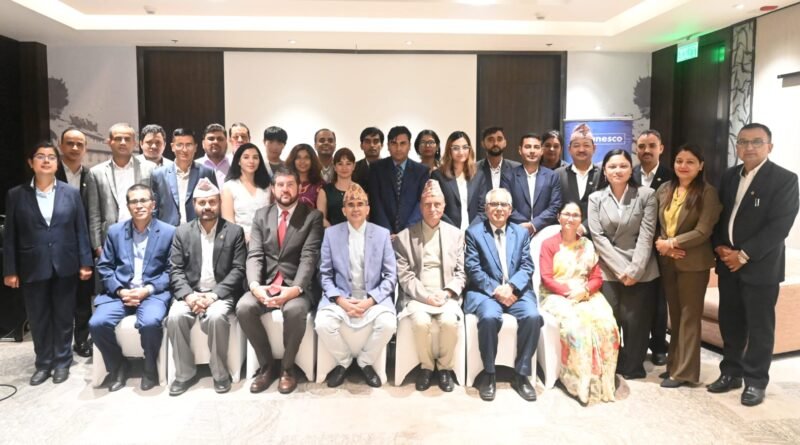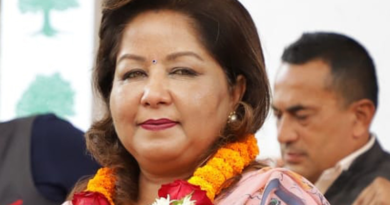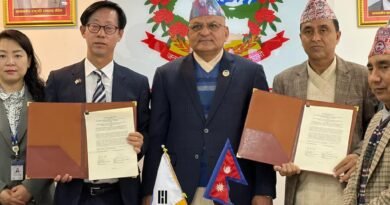Nepal’s Judiciary Contributes to the Development of UNESCO’s Guidelines for Use of AI in Judicial System
Kathmandu. With growing global interest in the ethical and effective use of AI in legal processes, a consultation bringing together over forty key stakeholders including judges, government attorneys, senior advocates, Nepal judicial officials, lawyers, representatives from the National Judicial Academy (NJA), Nepal Bar Association, Office of Attorney General and the Supreme Court of Nepal was held today in Kathmandu to discuss the UNESCO Draft Guidelines for AI Use in Judicial Systems.
Speaking at the event, Hon. Nahakul Subedi, Justice of the Supreme Court, stated that this consultation is the first of its kind in Nepal where judicial actors have come together to discuss the application of AI in the judiciary. “We are at a stage where we need to explore the potential of using AI. This collaboration has fostered ownership among Nepal’s judicial actors towards UNESCO’s Guidelines,” he added.
During the consultation, participants engaged in in-depth discussions aimed at refining and contributing to the Draft Guidelines, as well as formulating the national recommendations to be submitted to UNESCO to inform this global guidance.
“AI is like a bench assistant for us. We cannot believe everything it provides us. We still need to review, recheck and verify what it gives. This process, regulating AI and developing a guideline should not stop here and the collaboration must continue,” stated Hon. Baidya Nath Upadhyay, Executive Director, National Judicial Academy.
Through various group discussions, including a plenary session, national recommendations and feedback were formulated. These recommendations will be submitted to UNESCO to improve the draft guidelines, ensuring that the final version is not only globally relevant but takes into account the specific perspectives of countries like Nepal.
“We want to hear from all our Member States,” said Michael Croft, UNESCO Representative to Nepal, “But input from Nepal is especially relevant as it is formulated in the context of an open, democratic and pluralistic society, reflecting many of the underlying values of the Organization that will undoubtedly be reflected in the Guidelines.”
Building on the momentum from UNESCO’s November/December 2023 training on Freedom of Expression, Journalists’ Safety, and AI for judicial actors, this consultation marked a significant step forward in the ongoing collaboration between UNESCO and Nepali judicial actors. By leveraging AI to enhance access to justice and improve judicial efficiency, the guidelines developed through this consultation also aim to pave the way for future initiatives.
Why the Guidelines?
In 2023, a UNESCO survey on the use of AI systems by judicial operators found that 93% of respondents were familiar with AI technologies, with 44% already using AI tools such as ChatGPT for work-related activities. However, only 9% of judicial operators reported that their organizations had issued guidelines or provided AI-related training, underscoring the need for guidance on the use of AI systems in courts and tribunals.
As part of UNESCO’s AI and the Rule of Law Programme, under the Global Judges Initiative, UNESCO has developed draft Guidelines for the Use of AI Systems in Courts and Tribunals. These guidelines aim to offer comprehensive guidance to courts and tribunals, ensuring that the deployment of AI technologies aligns with the fundamental principles of justice, human rights, and the rule of law.




